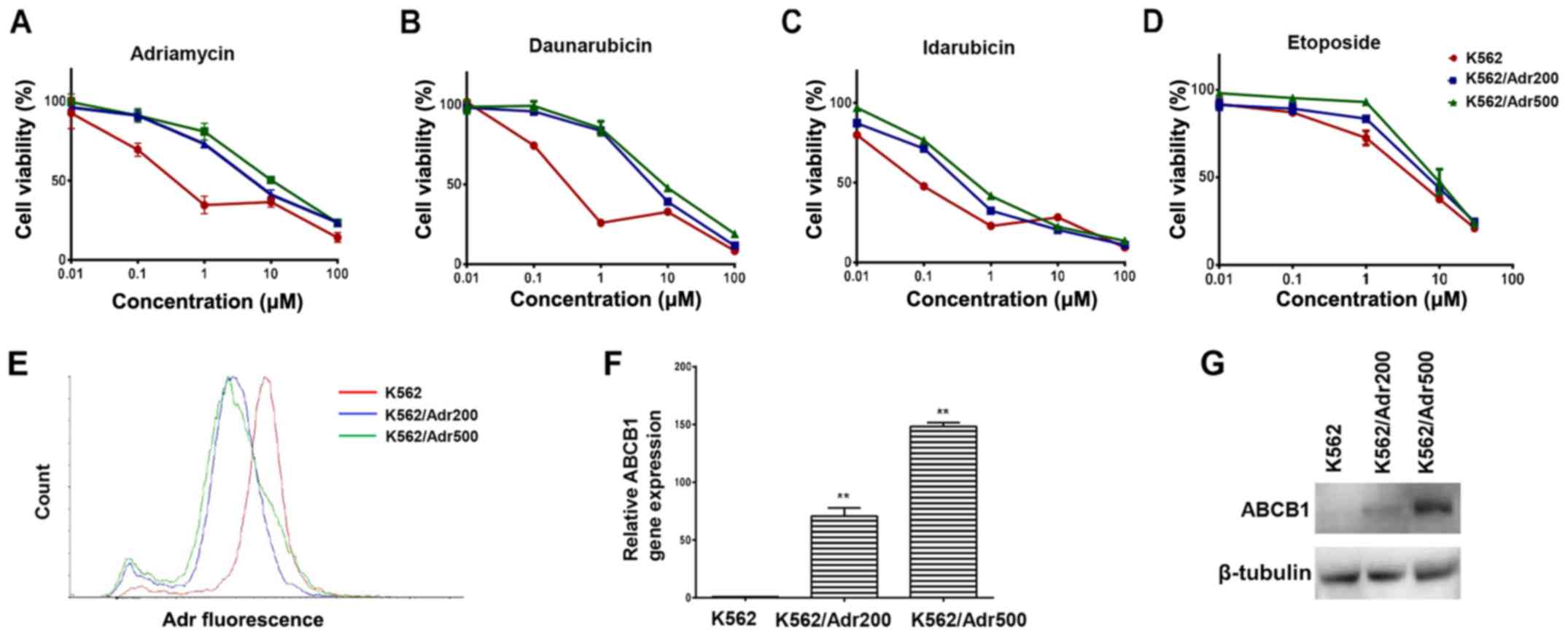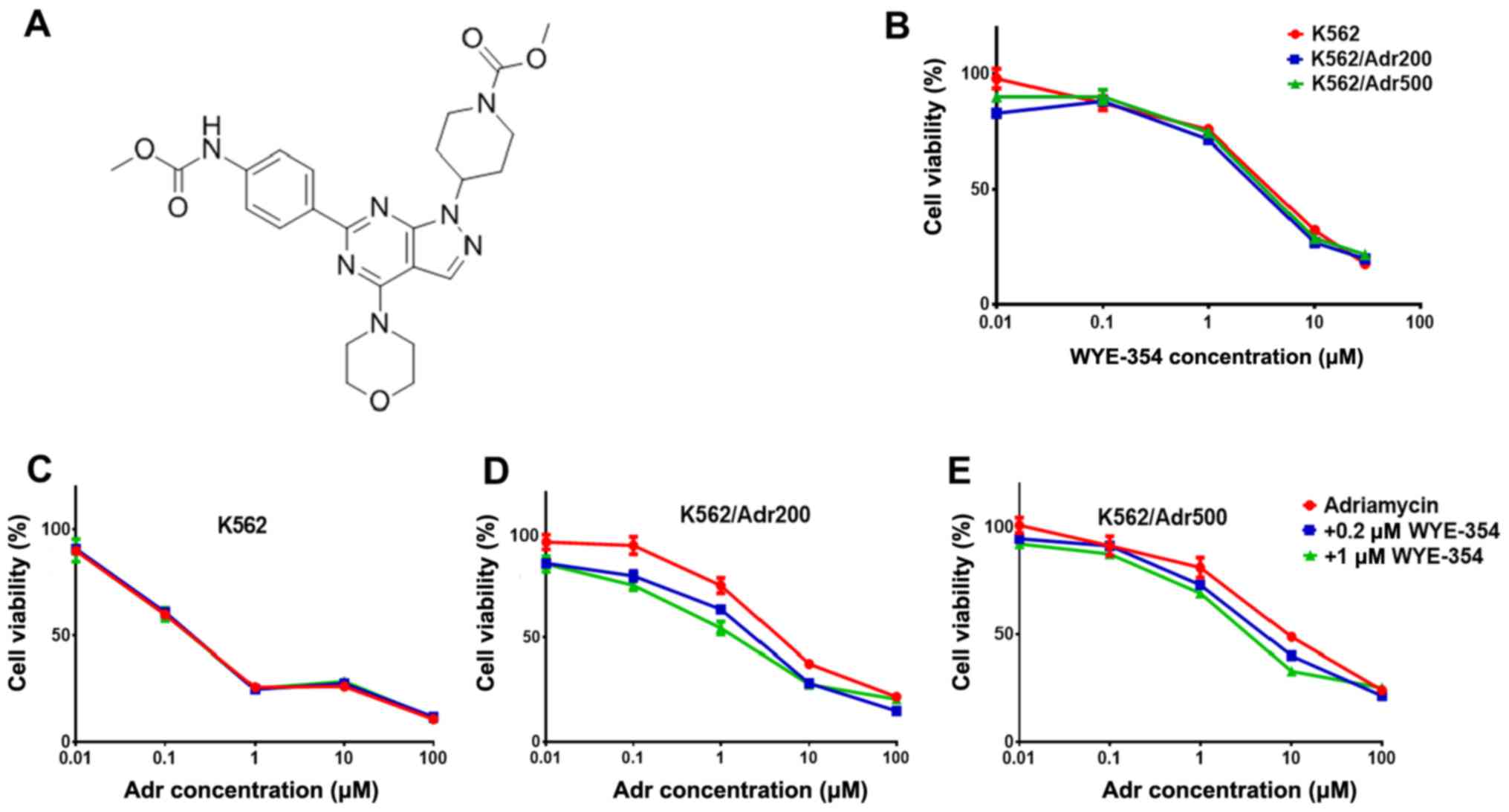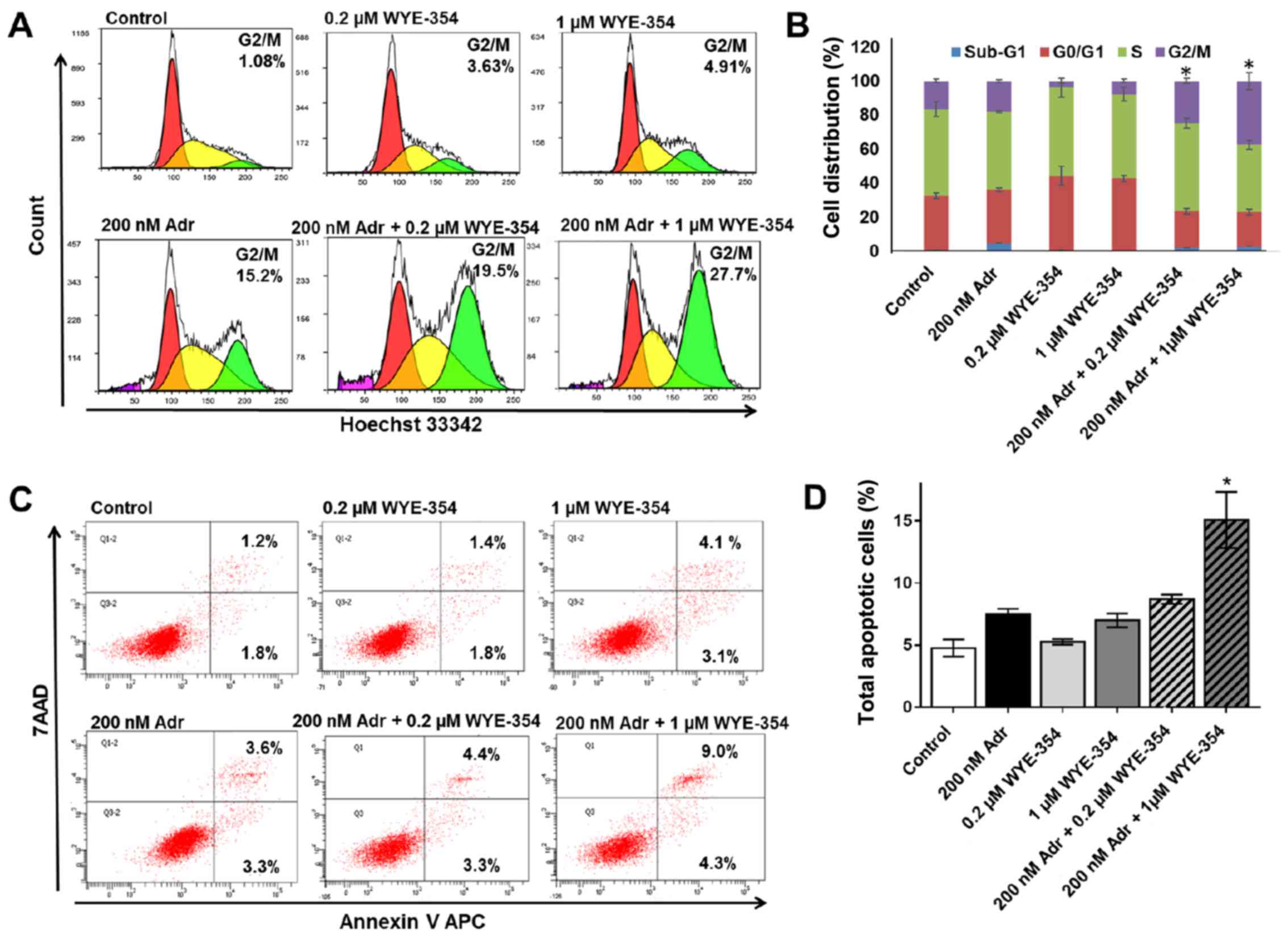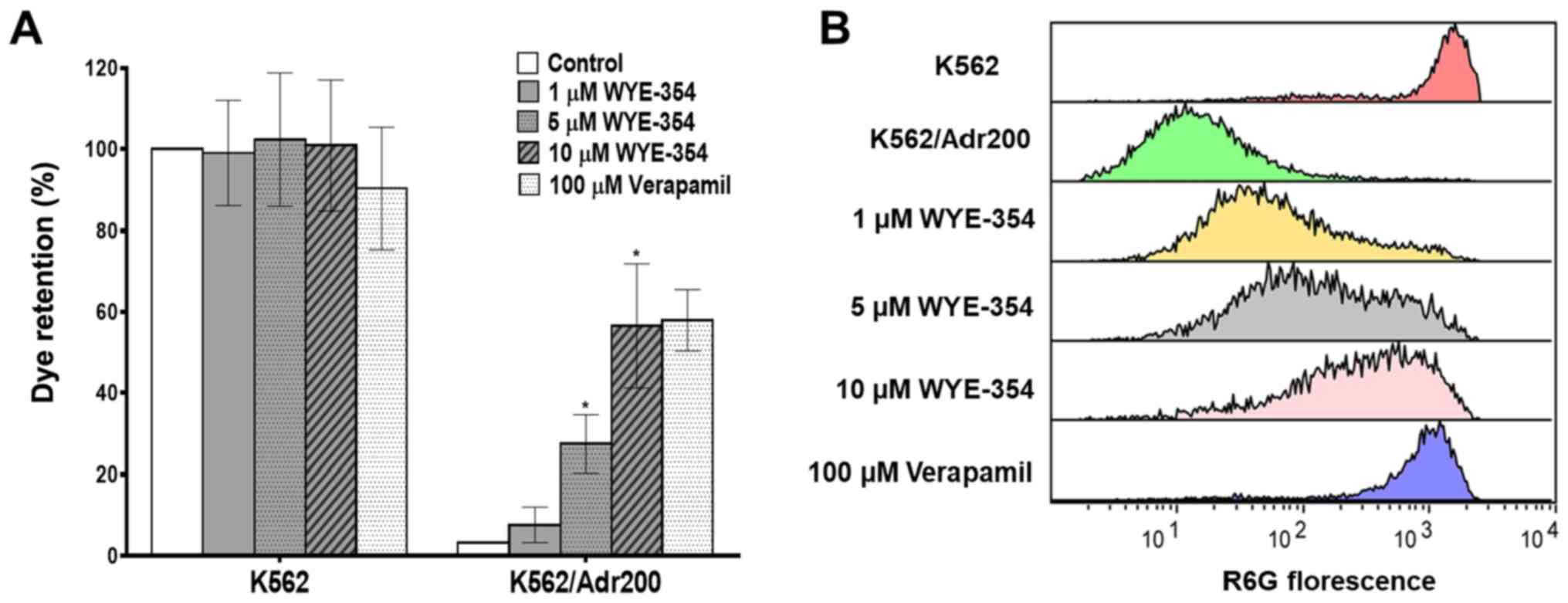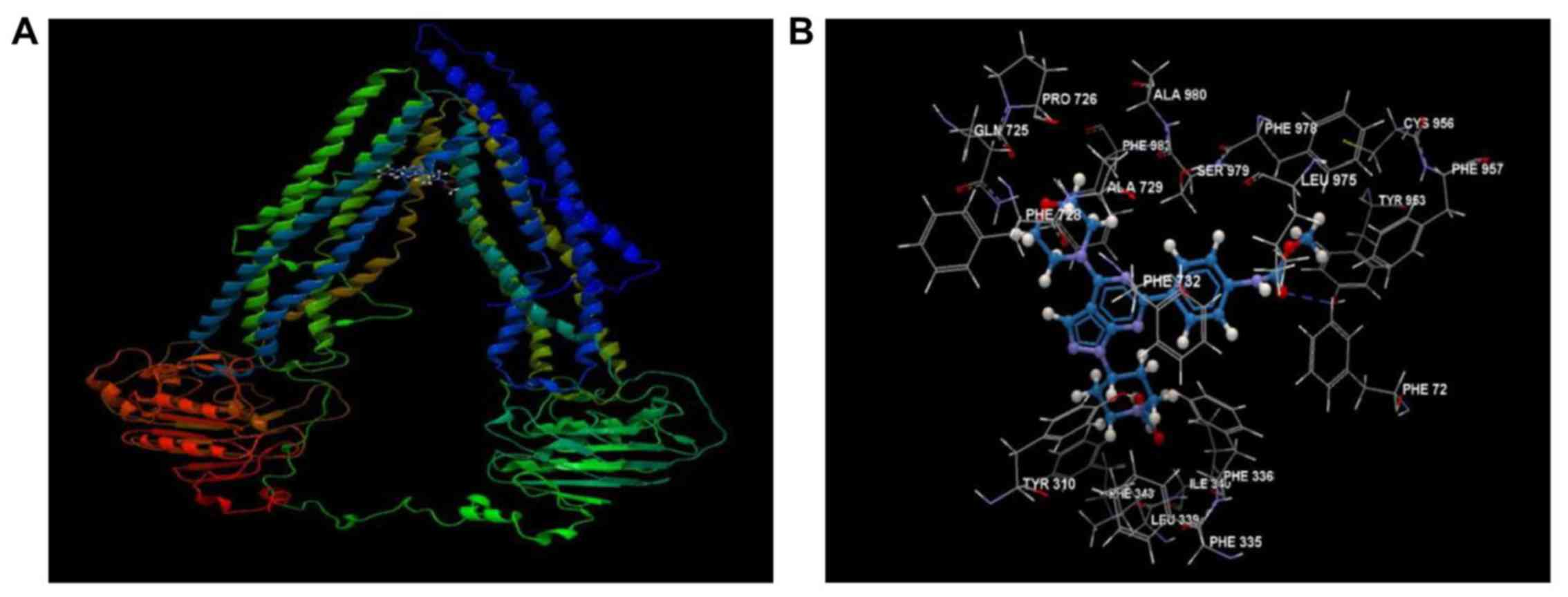|
1
|
Gottesman MM: Mechanisms of cancer drug
resistance. Annu Rev Med. 53:615–627. 2002. View Article : Google Scholar : PubMed/NCBI
|
|
2
|
Shaffer BC, Gillet JP, Patel C, Baer MR,
Bates SE and Gottesman MM: Drug resistance: Still a daunting
challenge to the successful treatment of AML. Drug Resist Updat.
15:62–69. 2012. View Article : Google Scholar : PubMed/NCBI
|
|
3
|
Parkin B, Ouillette P, Li Y, Keller J, Lam
C, Roulston D, Li C, Shedden K and Malek SN: Clonal evolution and
devolution after chemotherapy in adult acute myelogenous leukemia.
Blood. 121:369–377. 2013. View Article : Google Scholar : PubMed/NCBI
|
|
4
|
Löscher W and Potschka H: Role of drug
efflux transporters in the brain for drug disposition and treatment
of brain diseases. Prog Neurobiol. 76:22–76. 2005. View Article : Google Scholar : PubMed/NCBI
|
|
5
|
Mohammad IS, He W and Yin L: Understanding
of human ATP binding cassette superfamily and novel multidrug
resistance modulators to overcome MDR. Biomed Pharmacother.
100:335–348. 2018. View Article : Google Scholar : PubMed/NCBI
|
|
6
|
Dean M, Rzhetsky A and Allikmets R: The
human ATP-binding cassette (ABC) transporter superfamily. Genome
Res. 11:1156–1166. 2001. View Article : Google Scholar : PubMed/NCBI
|
|
7
|
Kathawala RJ, Gupta P, Ashby CR Jr and
Chen ZS: The modulation of ABC transporter-mediated multidrug
resistance in cancer: A review of the past decade. Drug Resist
Updat. 18:1–17. 2015. View Article : Google Scholar : PubMed/NCBI
|
|
8
|
Binkhathlan Z and Lavasanifar A:
P-glycoprotein inhibition as a therapeutic approach for overcoming
multidrug resistance in cancer: Current status and future
perspectives. Curr Cancer Drug Targets. 13:326–346. 2013.
View Article : Google Scholar : PubMed/NCBI
|
|
9
|
Yang K, Chen Y, To KK, Wang F, Li D, Chen
L and Fu L: Alectinib (CH5424802) antagonizes ABCB1- and
ABCG2-mediated multidrug resistance in vitro, in vivo and ex vivo.
Exp Mol Med. 49:e3032017. View Article : Google Scholar : PubMed/NCBI
|
|
10
|
Zhang YK, Zhang GN, Wang YJ, Patel BA,
Talele TT, Yang DH and Chen ZS: Bafetinib (INNO-406) reverses
multidrug resistance by inhibiting the efflux function of ABCB1 and
ABCG2 transporters. Sci Rep. 6:256942016. View Article : Google Scholar : PubMed/NCBI
|
|
11
|
Qiu JG, Zhang YJ, Li Y, Zhao JM, Zhang WJ,
Jiang QW, Mei XL, Xue YQ, Qin WM, Yang Y, et al: Trametinib
modulates cancer multidrug resistance by targeting ABCB1
transporter. Oncotarget. 6:15494–15509. 2015. View Article : Google Scholar : PubMed/NCBI
|
|
12
|
Li J, Kumar P, Anreddy N, Zhang YK, Wang
YJ, Chen Y, Talele TT, Gupta K, Trombetta LD and Chen ZS:
Quizartinib (AC220) reverses ABCG2-mediated multidrug resistance:
In vitro and in vivo studies. Oncotarget. 8:93785–93799.
2017.PubMed/NCBI
|
|
13
|
Dos Santos C, Récher C, Demur C and
Payrastre B: The PI3K/Akt/mTOR pathway: A new therapeutic target in
the treatment of acute myeloid leukemia. Bull Cancer. 93:445–447.
2006.(In French). PubMed/NCBI
|
|
14
|
Dinner S and Platanias LC: Targeting the
mTOR Pathway in Leukemia. J Cell Biochem. 117:1745–1752. 2016.
View Article : Google Scholar : PubMed/NCBI
|
|
15
|
Motzer RJ, Escudier B, Oudard S, Hutson
TE, Porta C, Bracarda S, Grünwald V, Thompson JA, Figlin RA,
Hollaender N, et al RECORD-1 Study Group, : Phase 3 trial of
everolimus for metastatic renal cell carcinoma: Final results and
analysis of prognostic factors. Cancer. 116:4256–4265. 2010.
View Article : Google Scholar : PubMed/NCBI
|
|
16
|
Hudes GR, Berkenblit A, Feingold J, Atkins
MB, Rini BI and Dutcher J: Clinical trial experience with
temsirolimus in patients with advanced renal cell carcinoma. Semin
Oncol. 36 (Suppl 3):S26–S36. 2009. View Article : Google Scholar : PubMed/NCBI
|
|
17
|
Park S, Chapuis N, Saint Marcoux F, Recher
C, Prebet T, Chevallier P, Cahn JY, Leguay T, Bories P, Witz F, et
al GOELAMS (Groupe Ouest Est d'Etude des Leucémies aiguës et Autres
Maladies du Sang), : A phase Ib GOELAMS study of the mTOR inhibitor
RAD001 in association with chemotherapy for AML patients in first
relapse. Leukemia. 27:1479–1486. 2013. View Article : Google Scholar : PubMed/NCBI
|
|
18
|
Haritunians T, Mori A, O'Kelly J, Luong
QT, Giles FJ and Koeffler HP: Antiproliferative activity of RAD001
(everolimus) as a single agent and combined with other agents in
mantle cell lymphoma. Leukemia. 21:333–339. 2007. View Article : Google Scholar : PubMed/NCBI
|
|
19
|
Grünwald V, DeGraffenried L, Russel D,
Friedrichs WE, Ray RB and Hidalgo M: Inhibitors of mTOR reverse
doxorubicin resistance conferred by PTEN status in prostate cancer
cells. Cancer Res. 62:6141–6145. 2002.PubMed/NCBI
|
|
20
|
Wang Z, Huang Y and Zhang J: Molecularly
targeting the PI3K-Akt-mTOR pathway can sensitize cancer cells to
radiotherapy and chemotherapy. Cell Mol Biol Lett. 19:233–242.
2014. View Article : Google Scholar : PubMed/NCBI
|
|
21
|
Harrington LS, Findlay GM, Gray A,
Tolkacheva T, Wigfield S, Rebholz H, Barnett J, Leslie NR, Cheng S,
Shepherd PR, et al: The TSC1-2 tumor suppressor controls
insulin-PI3K signaling via regulation of IRS proteins. J Cell Biol.
166:213–223. 2004. View Article : Google Scholar : PubMed/NCBI
|
|
22
|
Sun SY: mTOR kinase inhibitors as
potential cancer therapeutic drugs. Cancer Lett. 340:1–8. 2013.
View Article : Google Scholar : PubMed/NCBI
|
|
23
|
Yu K, Toral-Barza L, Shi C, Zhang WG,
Lucas J, Shor B, Kim J, Verheijen J, Curran K, Malwitz DJ, et al:
Biochemical, cellular, and in vivo activity of novel
ATP-competitive and selective inhibitors of the mammalian target of
rapamycin. Cancer Res. 69:6232–6240. 2009. View Article : Google Scholar : PubMed/NCBI
|
|
24
|
Wang L, Zhu YR, Wang S and Zhao S:
Autophagy inhibition sensitizes WYE-354-induced anti-colon cancer
activity in vitro and in vivo. Tumour Biol. 37:11743–11752. 2016.
View Article : Google Scholar : PubMed/NCBI
|
|
25
|
Weber H, Leal P, Stein S, Kunkel H, García
P, Bizama C, Espinoza JA, Riquelme I, Nervi B, Araya JC, et al:
Rapamycin and WYE-354 suppress human gallbladder cancer xenografts
in mice. Oncotarget. 6:31877–31888. 2015. View Article : Google Scholar : PubMed/NCBI
|
|
26
|
Livak KJ and Schmittgen TD: Analysis of
relative gene expression data using real-time quantitative PCR and
the 2(-Delta Delta C(T)) method. Methods. 25:402–408. 2001.
View Article : Google Scholar : PubMed/NCBI
|
|
27
|
Salvia AM, Cuviello F, Coluzzi S,
Nuccorini R, Attolico I, Pascale SP, Bisaccia F, Pizzuti M and
Ostuni A: Expression of some ATP-binding cassette transporters in
acute myeloid leukemia. Hematol Rep. 9:74062017. View Article : Google Scholar : PubMed/NCBI
|
|
28
|
Liu B, Li LJ, Gong X, Zhang W, Zhang H and
Zhao L: Co-expression of ATP binding cassette transporters is
associated with poor prognosis in acute myeloid leukemia. Oncol
Lett. 15:6671–6677. 2018.PubMed/NCBI
|
|
29
|
Beretta GL, Cassinelli G, Pennati M, Zuco
V and Gatt L: Overcoming ABC transporter-mediated multidrug
resistance: The dual role of tyrosine kinase inhibitors as
multitargeting agents. Eur J Med Chem. 142:271–289. 2017.
View Article : Google Scholar : PubMed/NCBI
|
|
30
|
Martelli AM, Evangelisti C, Chiarini F and
McCubrey JA: The phosphatidylinositol 3-kinase/Akt/mTOR signaling
network as a therapeutic target in acute myelogenous leukemia
patients. Oncotarget. 1:89–103. 2010.PubMed/NCBI
|
|
31
|
Tabe Y, Tafuri A, Sekihara K, Yang H and
Konopleva M: Inhibition of mTOR kinase as a therapeutic target for
acute myeloid leukemia. Expert Opin Ther Targets. 21:705–714. 2017.
View Article : Google Scholar : PubMed/NCBI
|
|
32
|
Ying L, Zu-An Z, Qing-Hua L, Qing-Yan K,
Lei L, Tao C and Yong-Ping W: RAD001 can reverse drug resistance of
SGC7901/DDP cells. Tumour Biol. 35:9171–9177. 2014. View Article : Google Scholar : PubMed/NCBI
|
|
33
|
Ma Q, Chang Z, Wang W and Wang B:
Rapamycin-mediated mTOR inhibition reverses drug resistance to
adriamycin in colon cancer cells. Hepatogastroenterology.
62:880–886. 2015.PubMed/NCBI
|
|
34
|
Deng L, Jiang L, Lin XH, Tseng KF, Liu Y,
Zhang X, Dong RH, Lu ZG and Wang XJ: The PI3K/mTOR dual inhibitor
BEZ235 suppresses proliferation and migration and reverses
multidrug resistance in acute myeloid leukemia. Acta Pharmacol Sin.
38:382–391. 2017. View Article : Google Scholar : PubMed/NCBI
|
|
35
|
Lee JS, Paull K, Alvarez M, Hose C, Monks
A, Grever M, Fojo AT and Bates SE: Rhodamine efflux patterns
predict P-glycoprotein substrates in the National Cancer Institute
drug screen. Mol Pharmacol. 46:627–638. 1994.PubMed/NCBI
|















